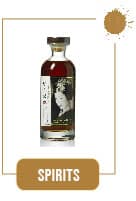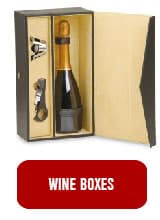No products
Catalog
- 1907
- 1918
- 1924
- 1925
- 1929
- 1931
- 1933
- 1934
- 1937
- 1938
- 1939
- 1940
- 1941
- 1942
- 1943
- 1944
- 1945
- 1946
- 1947
- 1948
- 1949
- 1950
- 1951
- 1952
- 1953
- 1954
- 1955
- 1956
- 1957
- 1958
- 1959
- 1960
- 1961
- 1962
- 1963
- 1964
- 1965
- 1966
- 1967
- 1968
- 1969
- 1970
- 1971
- 1972
- 1973
- 1974
- 1975
- 1976
- 1977
- 1978
- 1979
- 1980
- 1981
- 1982
- 1983
- 1984
- 1985
- 1986
- 1987
- 1988
- 1989
- 1990
- 1991
- 1992
- 1993
- 1994
- 1995
- 1996
- 1997
- 1998
- 1999
- 2000
- 2001
- 2002
- 2003
- 2004
- 2005
- 2006
- 2007
- 2008
- 2009
- 2010
- 2011
- 2012
- 2013
- 2014
- 2015
- 2016
- 2017
- 2018
- 2019
- 2020
extraordinary wines
Exceptional Wines (96-100 Points)
Exceptional wines, those rated between 96 and 100 points by critics like Robert Parker, represent the pinnacle of winemaking. These wines are considered extraordinary and often exhibit characteristics that set them apart from the rest. Here’s a breakdown of what makes a wine exceptional:
1. Unparalleled Qualit...
Exceptional Wines (96-100 Points)
Exceptional wines, those rated between 96 and 100 points by critics like Robert Parker, represent the pinnacle of winemaking. These wines are considered extraordinary and often exhibit characteristics that set them apart from the rest. Here’s a breakdown of what makes a wine exceptional:
1. Unparalleled Quality
- These wines are often the best examples of their region, varietal, or style. They reflect the perfect balance between all elements: aroma, taste, texture, and finish. An exceptional wine is not only well-made but also offers something unique and memorable.
- They often come from the top estates and most prestigious vineyards, where the winemakers’ expertise and attention to detail are reflected in every step of production.
2. Complexity
- Exceptional wines are layered with complexity. They tend to have multiple levels of aromas and flavors that evolve over time, offering a dynamic and engaging tasting experience.
- You might notice new aromas or tastes every time you take a sip, whether it’s fruit, spice, floral, earthy, or mineral notes that change as the wine airs and as it ages.
3. Perfect Balance
- These wines achieve perfect harmony between acidity, tannins, fruit, alcohol, and body. There’s no single element that overpowers the others. The balance makes them easy to drink, yet intriguing and sophisticated.
- The texture is often silky or smooth, with a well-structured body that feels elegant in the mouth.
4. Aging Potential
- Exceptional wines have outstanding aging potential. These wines can improve over the years, becoming even more complex and refined. The ability to age gracefully and continue evolving makes them not only a pleasure to drink now but also a great investment for the future.
- Some wines in this category are able to age for decades, making them highly sought after by collectors.
5. Memorable Finish
- The finish of an exceptional wine is long and lingering, often leaving a lasting impression. The flavors don’t dissipate quickly but instead linger on the palate, providing a satisfying conclusion to the tasting experience.
- A great wine’s finish is like a signature—it stays with you, making it memorable and distinctive.
6. Rarity and Prestige
- Many exceptional wines come from limited-production vineyards or prestigious estates that produce only a small quantity of wines each year. Their rarity often adds to their allure and exclusivity.
- These wines are sought after by collectors and connoisseurs and are often seen as symbols of status and quality in the wine world.
Examples of Exceptional Wines:
- Château Margaux (Bordeaux, France): Known for its luxurious texture and aromatic complexity, this wine is a benchmark of exceptional Bordeaux.
- Domaine de la Romanée-Conti (Burgundy, France): A legendary producer of Pinot Noir, often rated in the 97-100 range for its elegance, complexity, and purity.
- Penfolds Grange (Australia): A world-renowned Shiraz that consistently earns top marks for its rich flavors, balance, and aging potential.
Conclusion
Exceptional wines are rare gems that offer a truly extraordinary experience. They stand out not just for their impeccable quality, but for their complexity, balance, and ability to age. Drinking an exceptional wine is more than just tasting a beverage—it’s an experience, one that will be remembered and cherished for years to come.
Subcategories
-
wines rating 100/100
Wines Rated 100/100
Wines rated 100 points, particularly by renowned critics like Robert Parker, represent the absolute pinnacle of excellence in the wine world. These wines are of exceptional quality and are considered masterpieces of winemaking. Here’s what defines a wine rated 100/100:
1. Unmatched Quality
- A wine rated 100 points is often regarded as a masterpiece. It represents the peak expression of its terroir, grape variety, and winemaking craftsmanship. Every aspect of the wine—from the aromas to the texture, to the taste—reaches a level of perfection.
- These wines are produced under ideal conditions, with carefully selected grapes and meticulous attention to every step of the winemaking process.
2. Exceptional Complexity and Depth
- A 100/100 rated wine possesses rare complexity, with multiple layers of aromas and flavors that unfold as you taste. Each sip may reveal new nuances, whether it’s fruit, spice, minerality, or other elements.
- This complexity makes the tasting experience of these wines deeply captivating and rewarding, with each experience feeling unique.
3. Perfect Harmony
- A 100-point wine is perfectly balanced. Every component—acidity, tannins, fruit, alcohol, and texture—is in perfect harmony. No one element dominates the others, creating a smooth, elegant, and cohesive tasting experience.
- This harmony is what gives the wine its sense of perfection and refinement on the palate.
4. Exceptional Aging Potential
- Wines rated 100 points are often built to last. Their aging potential is extraordinary, and these wines can improve over time, gaining in complexity and finesse as they age.
- They can age for several decades without losing quality, which makes them particularly coveted by collectors.
5. Long and Memorable Finish
- The finish of a 100/100 wine is long, persistent, and memorable. The flavors linger on the palate long after you’ve swallowed, leaving an impression that lasts far longer than wines of lesser quality.
- The length of the finish is one of the distinguishing characteristics of an exceptional wine.
6. Rarity and Prestige
- Wines rated 100 points are often rare, coming from prestigious vineyards or grand estates that produce in small quantities. Their exclusivity and prestige add to their appeal and value.
- These wines are highly sought after by collectors and connoisseurs and can fetch very high prices in the market.
Examples of 100/100 Rated Wines:
- Château Margaux 2015 (Bordeaux, France): Often considered a Bordeaux masterpiece, with perfect complexity, balance, and incredible depth.
- Domaine de la Romanée-Conti Romanée-Conti 2015 (Burgundy, France): One of the most prestigious wines in the world, renowned for its finesse, complexity, and unparalleled aging potential.
- Screaming Eagle 2012 (Napa Valley, USA): An exceptional Cabernet Sauvignon, rated 100 points by Robert Parker, with rich aromas, perfect balance, and incredible aging potential.
Conclusion
Wines rated 100/100 are the epitome of excellence in the wine world. They are characterized by their complexity, perfect balance, aging potential, and rarity. These wines are considered works of art, and every tasting is an unforgettable experience. Whether for a collector or a wine enthusiast, 100-point wines are rare and precious treasures that embody the ideal of the perfect wine.
-
rated 98/100 or 99/100
Wines Rated 98/100 or 99/100
Wines rated 98 or 99 points by critics like Robert Parker are extremely high-quality wines, just shy of perfection. While they may not quite achieve the flawless balance and complexity of wines rated 100 points, they still represent exceptional craftsmanship and provide an extraordinary tasting experience. Here’s what defines a wine rated 98 or 99 points:
1. Exceptional Quality
- A wine rated 98 or 99 points is of outstanding quality. It’s usually extremely well-made, showcasing a refined expression of its terroir and grape variety. While not perfect, these wines are incredibly close to the ideal, offering an outstanding experience with very few (if any) flaws.
- These wines often come from top-tier estates or highly-regarded vineyards, with attention to every detail of production.
2. Intense Complexity and Depth
- Wines rated 98 or 99 points are known for their deep and complex flavors. They typically offer a wide range of aromas and tastes that evolve as you taste, with rich fruit, spices, floral notes, and sometimes earthy or mineral undertones.
- While not as multi-layered as 100-point wines, these wines still deliver a highly engaging and sophisticated profile that captivates the taster.
3. Near-Perfect Harmony
- These wines are generally well-balanced, with excellent integration of acidity, tannins, fruit, and alcohol. While a 100-point wine might have a more flawless or seamless balance, a wine rated 98 or 99 is still incredibly well-balanced and enjoyable.
- The structure is elegant and cohesive, and the wine delivers a refined drinking experience, though it may lack the slight "edge" that perfect wines often possess.
4. Impressive Aging Potential
- Wines rated 98 or 99 points are often built to age very well, although they may not have quite the same long-term aging potential as 100-point wines. With a few years of cellaring, these wines can continue to evolve and improve, gaining further complexity and finesse.
- They can be enjoyed relatively young, but they will also reward those who allow them to mature over time.
5. Long Finish and Memorable Experience
- While the finish may not be as exceptionally long or persistent as a 100-point wine, a wine rated 98 or 99 points will still have a long, satisfying finish that lingers on the palate.
- The experience is memorable, with lingering flavors that leave a lasting impression, reinforcing the wine’s exceptional quality.
6. Highly Prestigious and Sought After
- These wines come from highly regarded producers, and their rarity and prestige contribute to their appeal. While not as rare as 100-point wines, they are still highly sought after by collectors and wine enthusiasts.
- The price may be slightly lower than a perfect 100-point wine, but these wines are still considered prestigious and can command high prices, especially when from renowned estates.
Examples of Wines Rated 98/100 or 99/100:
- Château Latour 2010 (Bordeaux, France) – A magnificent Bordeaux, with deep complexity, outstanding balance, and an impressive aging potential.
- Domaine de la Romanée-Conti Grands-Échézeaux 2015 (Burgundy, France) – A Pinot Noir with incredible depth and complexity, showcasing the elegance and finesse characteristic of this iconic vineyard.
- Penfolds Grange 2014 (Australia) – A powerful, complex Shiraz, with layers of dark fruit, spice, and well-integrated oak, offering a refined and satisfying finish.
Conclusion
Wines rated 98 or 99 points are very close to perfection and represent some of the highest levels of winemaking excellence. They offer remarkable complexity, balance, and depth, providing an unforgettable tasting experience. While not quite flawless, these wines are still extraordinary and are highly regarded by collectors and wine connoisseurs. Whether enjoyed in their youth or cellared for a few years, these wines deliver exceptional quality and are sure to leave a lasting impression.
by Robert Parker, Wine Spectator or Jancis Robinson
-
rated 96/100 or 97/100
Wines Rated 96/100 or 97/100
Wines rated 96 or 97 points by critics like Robert Parker are considered to be of exceptional quality, offering a very high-level tasting experience, just shy of the top-tier 98 or 99-point wines. While they may not reach the pinnacle of perfection, they still deliver a remarkable and sophisticated experience. Here’s what defines a wine rated 96 or 97 points:
1. Exceptional Quality
- A wine rated 96 or 97 points is outstanding. While not perfect, it shows great quality across all aspects — from the expression of its terroir to the finesse of its aromas, the balance of its structure, and its ability to impress from the first sip.
- These wines often come from highly regarded estates and benefit from careful attention to detail in their production. They are known for their elegance and character.
2. Complexity and Depth
- Wines rated 96 or 97 points offer good complexity, with a broad range of flavors and aromas that develop as you taste. They often feature ripe fruit, spice, and sometimes floral or mineral notes.
- While not as complex as wines rated 98 or 99, they are still captivating and enjoyable, offering a very satisfying tasting experience.
3. Perfect Balance
- These wines are typically well-balanced. The key elements — acidity, tannins, fruit, and alcohol — are in harmony, creating a smooth and enjoyable tasting experience.
- They are very pleasant on the palate, with a structure and texture that complement the overall balance. The harmony is one of the key strengths of these wines, although it may not be as refined as that of 98 or 99-point wines.
4. Aging Potential
- Wines rated 96 or 97 points generally have good aging potential, although it may be more limited compared to 98 or 99-point wines. With a few years in the cellar, these wines will continue to evolve and refine, but their aging potential may not be as long or as dramatic as the very best wines.
- They can still develop complexity and finesse over time, but they may be enjoyed sooner than higher-rated wines.
5. Long and Enjoyable Finish
- While the finish of a 96 or 97-point wine may not be as long or persistent as that of a 98 or 99-point wine, it is still pleasant and satisfying. A good length on the palate enhances the overall quality of these wines.
- These wines leave a lasting impression, with flavors that linger and continue to develop after tasting.
6. Accessibility and Value for Money
- Wines rated 96 or 97 points often represent excellent value for money. While they are of exceptional quality, their price is generally more accessible than that of wines rated 98 or 99, making them a great choice for those who want high quality without breaking the bank.
- They offer a perfect balance of exceptional quality and value, making them ideal for those looking for a top-tier wine at a more reasonable price.
Examples of Wines Rated 96/100 or 97/100:
- Château Mouton Rothschild 2014 (Bordeaux, France) – A beautiful Bordeaux, balanced with deep fruit and an elegant structure.
- Chablis Grand Cru Les Clos 2016 (Burgundy, France) – An exceptional Chardonnay, with remarkable complexity, striking minerality, and refined texture.
- Caymus Special Selection Cabernet Sauvignon 2015 (Napa Valley, USA) – A powerful and rich wine with dark fruit aromas and smooth tannins, offering a lovely length on the finish.
Conclusion
Wines rated 96 or 97 points are exceptional wines that offer a very high-quality tasting experience. They feature good complexity, excellent balance, and notable aging potential. While they may not be perfect, they are incredibly well-made and can delight even the most discerning wine lovers. Their often attractive price-to-quality ratio makes them a great choice for those seeking an exceptional wine without aiming for absolute perfection. These wines are perfect for enjoying now or cellaring for a few years.
-

-

-

-

Adrianna Catena Zapata 2009 - Catena...
2009 Catena Zapata Adrianna Vineyard Malbec, Gualtallary, Argentina
-

-

-

-

-

-

Clos de Vougeot 2001 - domaine Leroy
2001 Domaine Leroy Clos de Vougeot Grand Cru, Cote de Nuits, France
-

-

Gevrey Chambertin 1er cru "Clos St...
2014 Domaine Armand Rousseau Pere et Fils Clos Saint-Jacques, Gevrey-Chambertin Premier Cru
100 % in stock
All of our products are avalaible on stock
Quick delivery
Your order will be shipped in 48 hours in a packaging provided for this purpose
Free delivery
Free shipment fees for orders over 1000 CHF (in Switzerland)
Free pickup in Geneva
In order to avoid shipping fees, your order can be picked up directly in our cellars or shop in Geneva
Your fidelity rewarded
2 % off



























